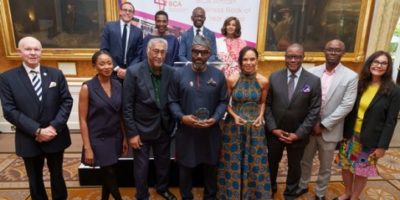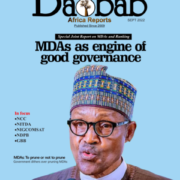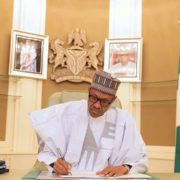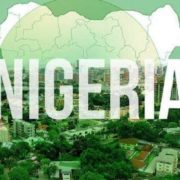A powerful cultural renaissance is underway in Nigeria, where communities are reclaiming their heritage and reimagining their future with confidence and clarity. Long known for its vibrant artistic traditions and dynamic creative industries, the country is now investing in cultural preservation and innovation as key drivers of identity, resilience, and economic growth.
“Art and material culture offer a way to erase colonial boundaries and place histories in relation to one another. A single bead shows us how trade and innovation thrived across West Africa long before European demarcation,” explains Ore Disu, cultural strategist and founding director of the Institute of the Museum of West African Art (MOWAA).
Themes of memory, belonging, and cultural autonomy
Themes of memory, belonging, and cultural autonomy are explored in the new season of Dreaming in Color, a podcast by The Bridgespan Group. In Episode 6, Disu reflects on Nigeria’s resurgence as part of a broader continental movement—one that champions African stories told in African voices, honoring complexity over spectacle and legacy over loss.
This sense of reconnection is at the heart of a movement to revive and recontextualise cultural assets—not just through the repatriation of artefacts, but by rebuilding the ecosystems around them. Infrastructure, education, funding, and platforms for artists are essential to ensuring that creativity continues to flourish and evolve within context.
In Benin City, the Museum of West African Art (MOWAA) is emerging as a cornerstone of this cultural revival. Though located in Nigeria, MOWAA is conceived as a regional institution—one that centres West African art and heritage in all its diversity. More than a repository of artefacts, it is a living space where traditional practices, local voices, and global conversations converge. Here, young curators are trained, communities engage deeply with their histories, and international visitors are invited into an ongoing dialogue about belonging and meaning.


West Africa not just defined by what was taken—but by what endures
While West Africa’s story is not solely defined by what was taken—but by what endures and thrives. For example, while the 1897 British invasion of Benin led to the looting of thousands of sacred objects, the Edo people’s cultural legacy continues to inspire pride, creativity, and a renewed commitment to restoration.
Unlike the sterile display cases of Western museums, Western African artefacts were historically housed in palaces, shrines, and community spaces—woven into the daily lives and spiritual practices of the people. That participatory ethos remains central today, with cultural institutions striving to be both guardians of tradition and catalysts for contemporary expression.
“The economic stakes are just as high as the symbolic ones,” says Disu. “Nigeria’s creative industries—spanning music, film, fashion, design, and literature—are globally influential. Yet they still need greater investment and recognition.”
In Nigeria, heritage preservation and artistic innovation go hand in hand. Institutions like MOWAA not only safeguard the past but also cultivate future generations of creators, leaders, and cultural stewards.
Not relying on external validation
“It’s really important that when we think about politically weighty subjects, like restitution, we go beyond just acts of Eurocentric return and guilt washing. And then we ask ourselves as Africans, as Black people, as human beings, what do we want out of this moment, and how do we make it really about us?” says Disu.
These possibilities are strengthened through trust-based funding, support for local talent, and the celebration of ideas that do not rely on external validation. When artists and communities are empowered to define their own narratives, they shape a future rooted in pride, purpose, and potential.
The goal is not simply to reclaim what was taken, but to create enduring institutions, language, and spaces that reflect—and expand—the possibilities for future generations.
















